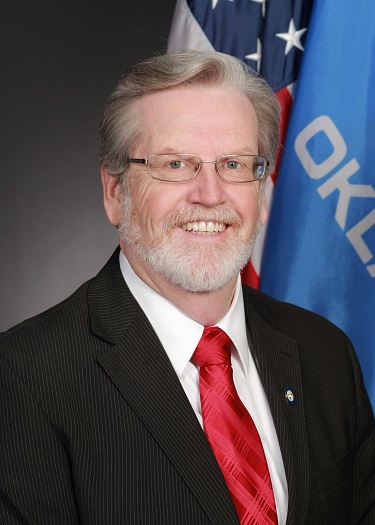In order to provide equal access and equal opportunity to people with diverse abilities, this site has been designed with accessibility in mind. Click here to view
‘Pay for Success’ legislation clears Senate, heads to Gov.
 Sen. Roger Thompson
Sen. Roger Thompson
A bill designed to promote innovation without risking tax dollars has been approved by the Senate and is now heading to the governor for his consideration. Senate Appropriations Chair Roger Thompson is Senate principal author of House Bill 2670, the Pay for Success Act, which was overwhelmingly approved by the Senate Tuesday. The House principal author for the measure is Rep. Kevin Wallace, Chair of the House Appropriations and Budget Committee.
“This bill encourages public/private partnerships that will result in innovations that help state agencies meet wide-ranging challenges without risking public resources,” said Thompson, R-Okemah. “Under this legislation, a private sector entity would be able to contract with a state agency to provide a program or services with the goal of achieving a certifiable result. That private entity would provide the financing up-front, but would only receive payment if they are successful.”
Under HB 2670, once an agency head determines that a contract will result in a public benefit, an agency may contract with a private entity to secure up-front capital from private investors to fund a state service or program. In addition to securing private funding, the Pay for Success (PFS) contracts must contain a method to secure a third-party to provide status reports, identify a payment schedule, and identify success metrics for a project.
Thompson said the PFS model has already been successfully used in Corrections.
“We’ve utilized Pay for Success to provide substance abuse treatment for women who otherwise would have gone to prison. It has helped Oklahoma address prison overcrowding and has actually turned lives around, helping these individuals become productive citizens,” Thompson said. “This legislation will help us expand the PFS model throughout state government. Again, we only pay for success, and I believe it’s an approach that will bring wide-ranging benefits to Oklahoma in a number of areas.”
 Oklahoma Senate
Oklahoma Senate

